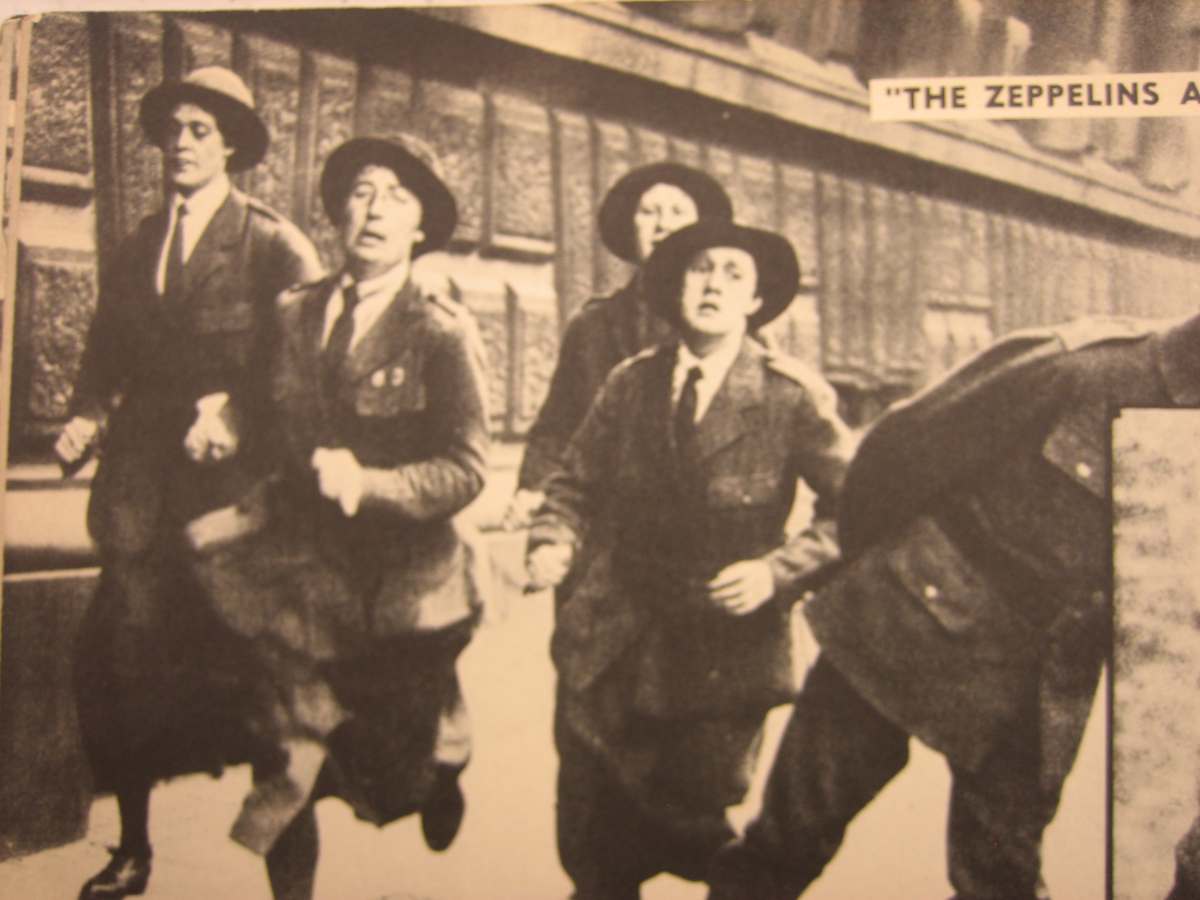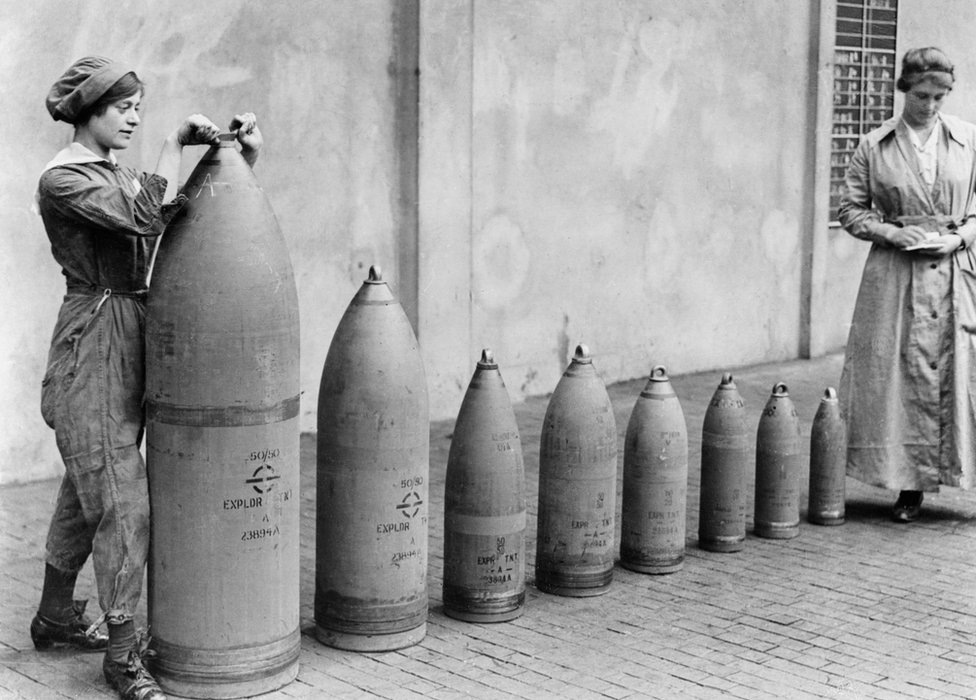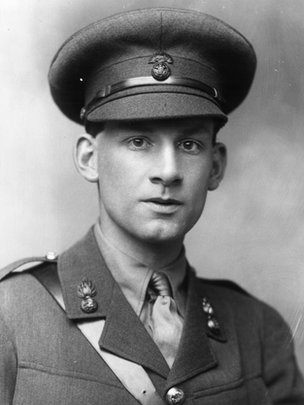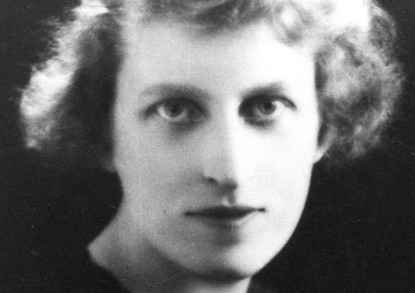Soldiers Die in Trenches; Civilians Perish in Air Attacks
The Poetry of the War.
Special to The Great War Project
(11-14 April) The German airship attacks on Britain are intensifying.
According to historian Martin Gilbert, in April 1916 there are at least seven night-time Zeppelin airship raids on England, including five attacks on London.

Londoners fleeing a German Zeppelin raid, 1916.
“The targets were docks and naval facilities,” he writes, “but most of the casualties were civilians.”
There is also a huge explosion at Kent in southeastern England that leaves 106 munitions workers dead, many of them women.
“By April 1916 almost 200,000 women were being employed in war industries,” Gilbert reports.

Women munitions workers in Britain, date unknown.
The war is creating some extraordinary writing, including at this moment a century ago, writing from the British poet Siegfried Sassoon.
Sassoon is an infantryman, and he relates that during the course of his training, he receives a gruesome lecture on the bayonet.
“Quickness, anger, strength, good fury, accuracy of aim,” Sassoon recalls the words of the training officer. “Don’t waste good steel. Six inches are enough. What’s the use of a foot of steel sticking out of a man’s neck? Three inches will do him, and when he coughs, go find another.”
During this training Sassoon responds with a poem he calls “The Kiss.” It is a beautiful paean to the bullet and the bayonet, the lead and steel on which the soldier’s life depends.

Poet Siegfried Sassoon.
To these I turn, in these I trust –
Brother Lead and Sister steel.
To this blind power I make appeal,
I guard her beauty clean from rust.
He spins and burns and loves the air,
And splits a skull to win my praises;
But up the nobly marching days,
She glitters naked, cold and fair.
In Britain, a young woman, not quite eighteen, named Winifred Holtby, learns of the horrors and sufferings of this war from a wounded friend, recuperating in England from a shoulder wound.

British writer Winifred Holtby
Through him she recounts “all the enormities he had seen at the front – the mouthless mangled faces, the human ribs whence rats would steal, the frenzied tortured horse, with leg or quarter rent away, still living; and rotted farms, the dazed and hopeless peasants, his innumerable suffering comrades; the desert of No Man’s Land, and all the thunder and moaning of war,”
“And the driving,” she continues. “The callous perpetual driving by some great force – which shoveled warm human hearts, and bodies, warm human hopes and loves, by the million into the furnace.”

The picture of Londoners fleeing an air raid is captioned incorrectly…
It should raid “British policewomen are pictured running and spreading the “Zeppelin” alarm in London to notify of an air raid.
Tell Your Friends!” 1916
Great blog !